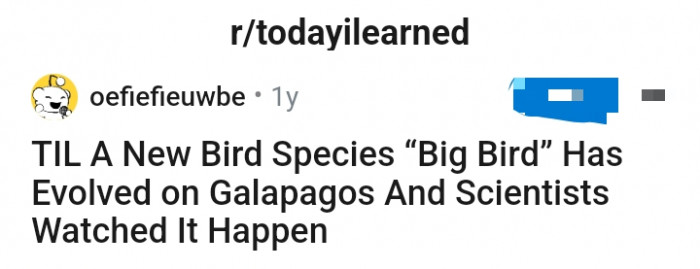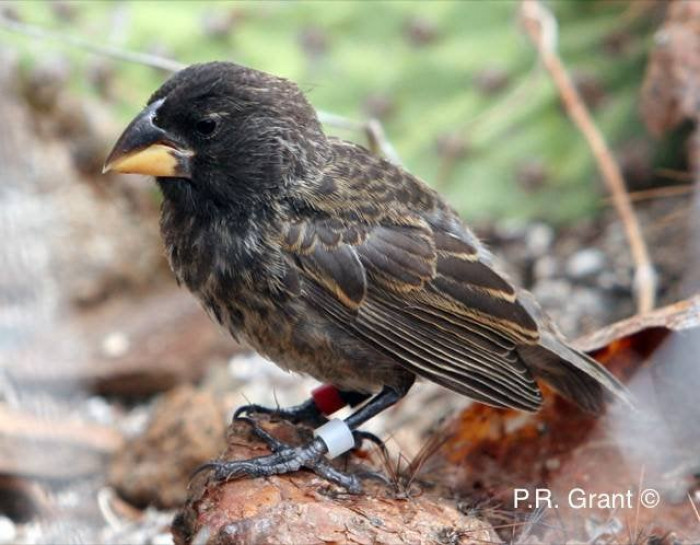
Redditors Learn About A New Breed Of “Big Bird” Which Evolved On Galapagos And Scientists Observed As It Happened
"He was so different from the other birds that we knew he did not hatch from an egg on Daphne Major"

A new study shows how new species can emerge in as few as two generations. The research followed Darwin's finches on the Galápagos island of Daphne Major, where a member of the G. conirostris species arrived from another island and interbred with a resident finch of the G. fortis species.
The offspring evolved into a new species known as the Big Bird lineage, according to the researchers. The research stems from work done on Darwin's finches, which live on the Pacific Ocean's Galápagos Islands.
Researchers have been able to study the evolution of biodiversity due to natural selection under pristine conditions thanks to the remote location. The direct observation of the origin of this new species occurred during fieldwork conducted over the last four decades on the small island of Daphne Major by B. Rosemary Grant and Peter Grant, a husband-and-wife team of Princeton scientists.
When the size and shape of the Big Bird beaks are compared to the beak morphologies of the other three species that live on Daphne Major, it is clear that the Big Birds have their unique niche in the beak morphology space. Thus, the merging of gene variants contributed by the two interbreeding species, combined with natural selection, resulted in the evolution of competitive and unique beak morphology.
More Info: Reddit, princeton.edu
Meet Redditor u/oefiefieuwbe who has an interesting piece of information to share with the TodayILearned subreddit group
 u/oefiefieuwbe
u/oefiefieuwbeThis Is The New Bird Species “Big Bird” Which Has Evolved on Galapagos
 princeton.edu
princeton.edu
A graduate student working with the Grants on Daphne Major in 1981 became aware of the newcomer, a male with a particular song and a physique and beak size that were significantly greater than those of the three native species of birds on the island. Peter Grant, an emeritus professor of ecology and evolutionary biology and the Class of 1877 Professor of Zoology said:
“We didn’t see him fly in from over the sea, but we noticed him shortly after he arrived. He was so different from the other birds that we knew he did not hatch from an egg on Daphne Major."
As usual, Redditors dropped their hot takes about the discovery and we've gathered a bunch of their replies for you to read through below.
This Redditor is clearly short of words
 Reddit
Reddit
This Redditor read about them from famous scientist and notorious Galapagos expert
 Reddit
RedditWhat cats everywhere are going to be like
 Reddit
Reddit
Too long has Big Bird lied to us about...
 Reddit
RedditWe're the eggs laid by hybrid eggs or big bird eggs?
 Reddit
Reddit
According to this Redditor, no one has ever seen evolution
 Reddit
RedditAnd this Redditor says that evolution is only a theory
 Reddit
Reddit
The Beak of the Finch by Jonathan Weiner
 Reddit
RedditThis Redditor is explaining the two different things
 Reddit
Reddit
The majority of these lineages have gone extinct
 Reddit
RedditIt is the big bird time
 Reddit
Reddit
Other characters will end up just missing him
 Reddit
RedditThis new bird would be considered critically endangered
 Reddit
RedditPreviously, researchers assumed that the formation of a new species takes a very long time. However, according to Grants' field observations combined with genetic studies, it happened in just two generations in the "Big Bird" lineage.
What are your thoughts? Let us know in the comments below.
Maryjane







